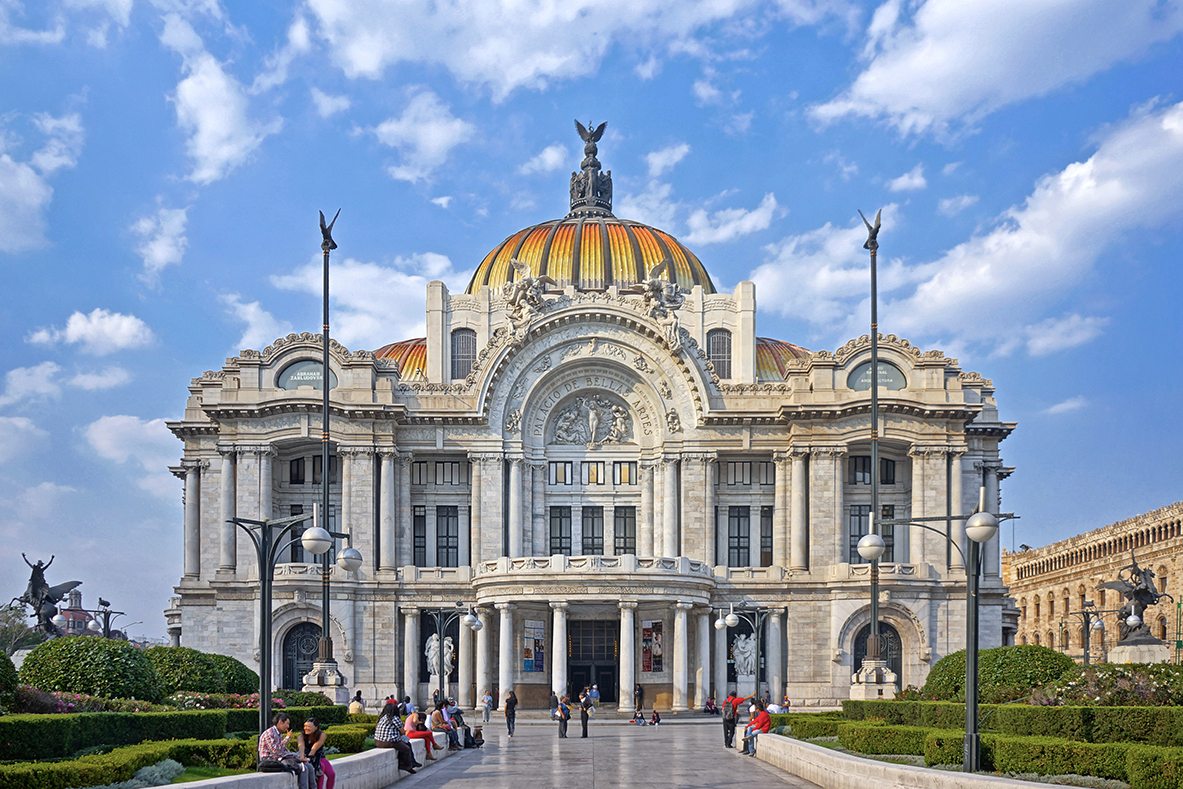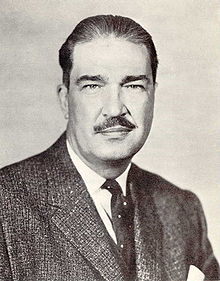by Ferdinand Bardamu
 The Christian origins of modern liberalism and socialism
The Christian origins of modern liberalism and socialism
The “anticipatory” consequences of spiritual equality meant social and economic equality for the church, leading to the establishment of formal communism in the early Christian communities. This was not just philanthropy, but a highly organized social welfare system that maximized the redistribution of wealth. Early Christian communism was widespread and lasted for centuries, crossing both geographical and ethno-cultural boundaries. The communist practices of the ante-Nicene church were rooted in the Jesus tradition of the 1st century. The existence of early Christian communism is well-attested by the Ante-Nicene fathers and contemporary pagans.
After Christianity became the official state religion, the church became increasingly hierarchical as ecclesiastical functions were merged with those of imperial bureaucracy. The communist socio-economic practices of the early church were abandoned by medieval Christians. This was replaced by a view of inequality as static, the result of a “great chain of being” that ranked things from lowest to highest. The great chain was used by theologians to justify cosmologically the rigidly stratified social order that had emerged from the ashes of the old Roman world. It added a veneer of ideological legitimacy to the feudal system in Europe. In the great chain, Christ’s vicar, the pope, was stationed at the top, followed by European monarchs, clergy, nobility and, at the very bottom, landless peasantry. This entailed a view of spiritual equality as “antipathetic.” St. Thomas Aquinas provided further justification for inequality along narrowly teleological lines. In the Summa Contra Gentiles, diversity and variety in creation reflect the harmonious order established by god. If the universe only contained equal things, only one kind of good would exist and this would detract from the beauty and perfection of creation.
The antipathetic view of Christian equality was the dominant one until the Protestant Reformation of the 16th century. Martin Luther’s iconic act—the nailing of the 95 Theses to the Wittenberg Castle door in 1517—began an ecclesiastical crisis of authority that was to have tremendous repercussions for the future of Western history. The pope was no longer the supreme representative of Christ on earth, but an irredeemably corrupt tyrant, who had wantonly cast the church into the wilderness of spiritual oblivion and error.
Access to previously unknown works of ancient science and philosophy introduced to an educated public the pagan epistemic values that would pave the way for the Scientific Revolution of the 17th century. The humanist cry of ad fontes! was eagerly embraced by Reformers. It allowed them to undermine scholastic hermeneutical principles (i.e. the Quadriga) and the major doctrines of medieval Christianity. The rediscovery of more reliable manuscripts of the Bible served as an important catalyst of the Reformation.
Reformed theologians, armed with humanist textual and philological methods, studied the New Testament and the Ante-Nicene fathers in the original languages. This led to a Christian “renaissance,” a rediscovery of the early Christian world. Compared to the lax morality and spiritual indifference of late medieval clergy, the first 4 or 5 centuries of the primitive church seemed like a golden age, one that maintained the doctrinal purity of Christian orthodoxy until Pope Gregory I, unencumbered by the gross distortions of scholastic theology and ecclesiastical tradition. Early Christian teachings and practices, forgotten during the Middle Ages, became popular once again among Protestants.
Reformers sought to recapture the spirit of primitive Christianity by incorporating egalitarian and majoritarian principles into an early modern ecclesiastical setting. Egalitarian thought was first enunciated in Luther’s teaching on the universal priesthood of all believers. In contrast to medieval Christian teaching, which viewed the clergy as members of a spiritual aristocracy, Luther proclaimed all Christians equally priests before god, with each one having the same capacity to preach and minister to fellow believers. On this basis, Luther demanded an end to the differential treatment of clergy and laity under canon law. He also defended the majoritarian principle by challenging the Roman ecclesiastical prerogative of appointing ministers for Christian congregations. Calvin, the other great Reformed leader, acknowledged the real-world consequences of spiritual equality, but approached it from the perspective of universal equality in total depravity.
Protestant radicals viewed the egalitarian policies of the mainstream Reformed churches as fundamentally inadequate; any concrete realization of Christian spiritual equality entailed a large-scale revival of the communistic socio-economic practices of the primitive church. Muntzer, an early disciple of Luther, is representative of this more radical egalitarian version of the gospel. In 1525, a group of religious fanatics, including Muntzer, seized control of Muhlhausen in Thuringia. During their brief rule over the city, they implemented the program of the Eleven Articles, a revolutionary document calling for social justice and the elimination of poverty. Idols were smashed, monks were driven out of their convents and monastic property was seized and redistributed to the poor. From the pulpit, Muntzer delivered fiery sermons ordering his congregation to do away with the “idol” of private property if they wished the “spirit of God” to dwell among them. A leader of the Peasant’s War in Germany, he was captured in May of 1525 after his army was defeated at Frankenhausen. He was tortured and then executed, but not before his captors were able to extract the confession: “Omnia sunt communia.” Whether the confession represents the exact words of Muntzer is controversial; nevertheless, it accurately reflects Muntzer’s anti-materialistic piety and view that the teachings of the gospel were to be implemented in full.
The Munster Rebellion of 1534-1535, led by Jan Matthys and Johann of Leiden, was far more extreme in its radicalism. After the Anabaptist seizure of the city, Matthys declared Munster the site of the New Jerusalem. Catholics and Lutherans were then driven from the town, their property confiscated and redistributed to the poor “according to their needs” by deacons who had been carefully selected by Matthys. They set about imposing the primitive communism of the early church upon the town’s inhabitants. Money was abolished; personal dwellings were made the public property of all Christian believers; people were forced to cook and eat their food in communal kitchens and dining-halls, in imitation of the early Christian “love feasts.” Ominously, Matthys and Johann even ordered the mass burning of all books, except the Bible. This was to symbolize a break with the sinful past and the beginning of a new communist era, like the Year One of the French Revolutionary National Convention. In the fall of 1534, Anabaptist-controlled Munster officially abolished all private property within city limits. But the Anabaptist commune was not to last for long. After a lengthy siege, the Anabaptist ringleaders, including Johann of Leiden, were captured, tortured and then executed by the Bishop of Munster.
The Diggers (or “True Levellers”) and the Levellers (or “Agitators”), active during the English Civil Wars (1642-1651) and the Protectorate (1653-1659), were strongly influenced by primitive Christian teaching. The Diggers, founded by Gerard Winstanley, were inspired by the communist socio-economic practices of the early Christians. They tried to establish agrarian communism in England, but were opposed in this endeavor, often violently, by wealthy farmers and local government officials who dismissed them as atheists and libertines. The more influential Levellers, a radical Puritan faction, tried to thoroughly democratize England by introducing policies of religious toleration and universal male suffrage. Their rejection of the arbitrary monarchical power of King Charles I in favor of egalitarian democracy was ultimately informed by Christian theological premises. Prominent Levellers like “Freeborn” John Lilburne argued for democratic egalitarian principles based on their exegetical interpretation of the Book of Genesis. All men were created equal, they said, with no one having more power, dignity and authority than anyone else in the Garden of Eden. Since no man had the right to exercise authority over others, only popular sovereignty could legitimately serve as the underlying basis of civil government. Many Leveller proposals, as written down in the Agreement of the People, were incorporated into the English Bill of Rights of 1689. This document later influenced the American Bill of Rights of 1791.
John Locke was the founder of modern liberalism, a political tradition soaked in Christian religious dogma. He drew many social and political implications from Christian spiritual equality. His belief in equality was rooted in the firm conviction that all men were created in the image of god, making them equal by nature. Church fathers and medieval theologians had long argued that all men, whether slave or free, were “by nature equal,” but that social inequality among men was god’s punishment for sin. John Locke agreed with the patristic and medieval authors on natural equality but repudiated their use of original sin to justify the passive acceptance of human social and economic inequality. Like the Protestant reformers before him, he believed that spiritual equality was not merely eschatological, but entailed certain real-world implications of far-reaching political significance.
Locke’s argument for universal equality was derived from a careful historical and exegetical interpretation of the biblical narrative. The creation of man in god’s image had enormous ramifications for his political theory, especially as it concerns his views on the nature of civil government and the scope of its authority. From his reading of Genesis, Locke argued that no man had the right to dominate and exploit other members of the human species. Man was created by god to exercise dominion over the animal kingdom. Unlike animals, who are by nature inferior, there can be no subjection among humans because their species-membership bears the imprint of an “omnipotent and infinitely wise maker.” This meant that all men are born naturally free and independent. Locke’s view of universal equality further entailed the “possession of the same faculties” by all men. Although men differed in terms of gross intellectual endowment, they all possessed a low-level intellectual ability that allowed them to manipulate abstract ideas and logically reason out the existence of a supreme being.
In Locke’s view, all government authority must be based on the consent of the electorate. This was an extension of his belief in mankind’s natural equality. Any abuse of power by elected representatives, when all judicial and political avenues of redress had been exhausted, was to be remedied by armed revolution. This would restore men to the original liberty they had in the Garden of Eden. Freedom from tyranny would allow them to elect a government that was more consonant with the will of the people.
Locke’s theory of natural rights was based on biblical notions of an idyllic prehistory in the Garden of Eden. Contrary to monarchical theorists like Filmer, man’s earliest social organization was not a hierarchical one, but egalitarian and democratic. If all men were created equal, no one had the right to deprive any man of life, liberty and private property. In Lockean political philosophy, rights are essentially moral obligations with Christian religious overtones. If men were obliged to surrender certain natural rights to the civil government, it was only because they were better administered collectively for the general welfare. Those rights that could not be surrendered were considered basic liberties, like the right to life and private property.
Early modern Christian writers envisioned in detail what an ideal communist society would look like and how it would function. The earliest communist literature emerged from within a Christian religious context. A famous example is Thomas More’s Utopia, written in 1516, which owes more to patristic ideals of communism and monastic egalitarian practice than Plato’s Republic. Another explicitly communist work is the Dominican friar Tommaso Campanella’s 1602 book City of the Sun. These works form an important bridge between pre-modern Christian communism and the “utopian” and “scientific” socialism of the 19th century. For the first time in history, these writings provided an in-depth critique of the socio-economic conditions of contemporary European society, indicating that only through implementation of a communist system would it be possible to fully realize the humanist ideals of the Renaissance. They went beyond communalization of property within isolated patriarchal communities to envisage the transformation of large-scale political units into unified economic organisms. These would be characterized by social ownership and democratic control. Implicit in these writings was the assumption that only the power of the state could bring about a just and humanitarian social order.
“Utopian” or pre-Marxian socialism was an important stage in the development of modern leftist ideology. Its major exponents, Blanc, Cabet, Fourier, Saint-Simon and Owen, were either devout Christians or men profoundly influenced by the socio-economic and ethical teachings of primitive Christianity. They often viewed Jesus of Nazareth as a great socialist leader. They typically believed that their version of communism was a faithful realization of Jesus’ evangelical message. In the pre-Marxian vision, the primitive communism of the early Christian church was an ideal to be embraced and imitated. Many of these writers even defended their communist beliefs through extensive quotation from the New Testament.
Louis Blanc saw Jesus Christ as the “sublime master of all socialists” and socialism as the “gospel in action.” Etienne Cabet, the founder of the Icarian movement, equated true Christianity with communism. If Icarianism was the earthly realization of Jesus’ vision of a coming kingdom of god, it was imperative that all communists “admire, love and invoke Jesus Christ and his doctrine.” Charles Fourier, an early founder of modern socialism, viewed Jesus Christ and Isaac Newton as the two most important figures in the formative development of his belief-system. He grounded his socialist ideology squarely within the Christian tradition. As the only true follower of Jesus Christ, Fourier was sent to earth as the “Comforter” of John 14:26, the “Messiah of Reason” who would rehabilitate all mankind along socialist industrial lines.
Henri de Saint-Simon, another important founder of modern socialism, believed the true gospel of Christ to be one of humility and equality. He advocated a “New Christianity” that would realize the practical and economic implications of the just world order preached by Jesus. Saint-Simon was also an early precursor of the Social Gospel movement, which sought to ameliorate social pathology through application of Christian ethical principles. The early Welsh founder of modern socialism, Robert Owen, although hostile to organized Christianity and other established religions, regarded his version of socialism as “true and genuine Christianity, freed from the errors that had been attached to it.” Only through the practice of socialism would the “invaluable precepts of the Gospel” be fully realized in contemporary industrial society.
The earliest pioneers of socialism, all of whom maintained socio-economic views grounded upon Christian religious principles, exercised a profound and lasting influence on Marx. His neo-Christian religious beliefs must be regarded as the only real historical successor of orthodox Christianity, largely because his ideology led to the implementation of Christian socio-economic teachings on a scale hitherto unimaginable. Muntzer, the radical Anabaptists and other Christian communists are considered important predecessors of the modern socialist movements of the 19th and 20th centuries. For example, in Friedrich Engels’ short monograph The Peasant War in Germany, Muntzer is immortalized as the man whose religious and political views were way ahead of his times. He even possessed a far more sophisticated “theoretical equipment” than the many communist movements of Engels’ own day.
The primitive communist transformation of the socio-economic order under Christianity is based on 1.) the elimination of all ethno-linguistic and socio-economic distinction between men—unity in Christ—and; 2.) the fundamental spiritual equality of all human beings before god; it is the mirror image of the modern communist transformation of the socio-economic order under classical Marxist ideology, which is based on 1.) elimination of all class distinction between men and; 2.) a fundamental “equality” of access to a common storehouse of agricultural produce and manufactured goods. The numerous similarities between Christian communism and Marxism are too striking to be mere coincidence. Without the dominant influence of Christianity, the rise of modern communism and socialism would have been impossible.
The Protestant Reformation of the 16th century links the socio-economic egalitarianism of the early Christian communities with the socio-economic egalitarianism of the modern West. As a religious mass movement beginning in late medieval times, it profoundly affected the course of Western civilization. The Reformation played an instrumental role in the initial formulation and spread of liberal and socialist forms of egalitarian thought that now serve as the dominant state religions of the modern Western “democracies.” Without Luther and the mass upheaval that followed in his wake, Christian spiritual equality would have remained an eschatological fact with no direct bearing on the modern secular world.
Spengler’s observation that “Christian theology is the grandmother of Bolshevism” is a truism. All forms of Western communism are grounded in the Christian tradition. The same applies to liberal egalitarian thought, which was also formulated within a Christian religious milieu.





